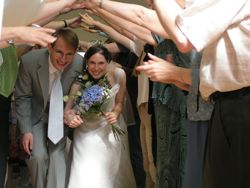 My name is Amy and my studies at Wheaton included a major in English and a minor in German.
My name is Amy and my studies at Wheaton included a major in English and a minor in German.
For the past seven years I have been living in Russia, serving with a linguistics and translation organization. In 2007 I married Aleksei, who is Russian but was born in East Germany.
In high school I chose to study German because my family’s heritage is in the Schwarzwald. When I entered Wheaton I declared math as my major, but in time switched to English literature (quite a change!). Though I wasn’t sure which major to have, I was always certain I wanted a German minor. I couldn’t imagine quitting my German studies.
During my years at Wheaton, God lead me through some amazing turns in my life’s journey and opened doors I hadn’t known existed. One of these new doors was the field of linguistics (part of the required courses for all foreign language minors was a course in Applied Linguistics). Linguistics is like math with words – a combination of my varied interests. I fell in love with linguistics and spent many a Friday night blissfully decoding the puzzles of languages!
For the first four years after graduating from Wheaton, I worked on a bilingual dictionary for a Central Asian Turkic-related language. The past two years I have been coordinating and teaching a 3-month cross-cultural living orientation for translation workers newly arrived in Eurasia. I get to share with them the all the wonderful history and culture of Russia, walk them through intensive Russian language learning, and introduce them to the over 150 non-Slavic people groups in the CIS who have their own unique languages, histories, cultures, and values.
As geographic location is becoming less of a barrier in our age of globalization, many optimistically assume that culture and language barriers are disappearing as well. But in fact we are bumping into the invisible barrier of culture all the more as our cross-cultural interaction increases. Culture is much more than just outward customs such as do you greet someone with a handshake, a hug, or a bow – it is deeply rooted values and a lens that tints how we perceive all of life. These values are difficult to articulate and recognize – much like a fish cannot see the water it swims in. We may have instant virtual communication with people from every corner of the globe, but it takes time and patience to truly connect with someone’s culture. Life-changing, trust-filled relationships still require listening, an openness that your way of doing things is not the only way, and a desire to learn. Language and culture are intrinsically connected. The Russians even have a saying that the number of languages someone has learned is the number of times they have become a new person.
Putting in time and effort to learn someone else’s language and culture rather than expect that they should learn your language and culture shows respect and builds trust. This applies to both the business world and to missions work. I encourage you to pursue language and culture learning – whether German or another language. Along the road to understanding people from another culture, you will discover more about the world we live in, yourself, and even experience God in new ways.
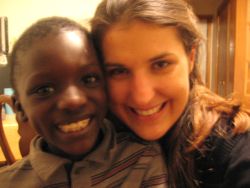 I was an International Relations and German double major.
I was an International Relations and German double major. I graduated from Wheaton in '08 with a Philosophy/German double major.
I graduated from Wheaton in '08 with a Philosophy/German double major.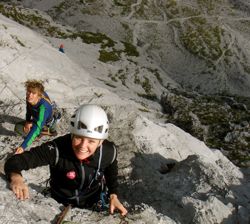 After graduating from Wheaton with a German major, I enrolled in the German Studies Master's program at Middlebury College. I spent 3 semesters (one at the Middlebury Campus, two in Mainz, Germany) fine tuning my language skills, but more importantly gaining a deeper, richer understanding of German culture. In short, it was only a matter of weeks before I knew this experience would not merely end with a M.A. degree.
After graduating from Wheaton with a German major, I enrolled in the German Studies Master's program at Middlebury College. I spent 3 semesters (one at the Middlebury Campus, two in Mainz, Germany) fine tuning my language skills, but more importantly gaining a deeper, richer understanding of German culture. In short, it was only a matter of weeks before I knew this experience would not merely end with a M.A. degree.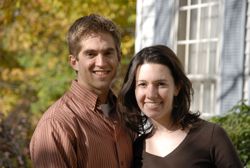 I’m Andrea. I graduated in 2006 from Wheaton with a major in Communication and a minor in German.
I’m Andrea. I graduated in 2006 from Wheaton with a major in Communication and a minor in German.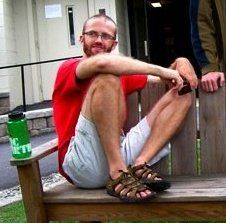 I work at Teavana in Pittsburgh, Pennsylvania as a tea salesperson.
I work at Teavana in Pittsburgh, Pennsylvania as a tea salesperson.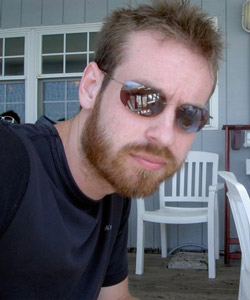 I am currently working on a Masters of Science in Applied Linguistics at the University of Edinburgh in Scotland. The focus is not on German; however, I still have many relationships that afford me the opportunity to keep up my German. I have not settled on a topic yet for my research, but I’m considering language used in the evangelical church.
I am currently working on a Masters of Science in Applied Linguistics at the University of Edinburgh in Scotland. The focus is not on German; however, I still have many relationships that afford me the opportunity to keep up my German. I have not settled on a topic yet for my research, but I’m considering language used in the evangelical church.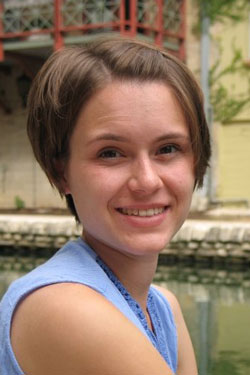 German started out only as a hobby for me. My family's German origins inspired me to revive the language that had been lost in my parents' generation. Once I started studying German, I just couldn't stop! I graduated from Wheaton in 2005 as a German major.
German started out only as a hobby for me. My family's German origins inspired me to revive the language that had been lost in my parents' generation. Once I started studying German, I just couldn't stop! I graduated from Wheaton in 2005 as a German major.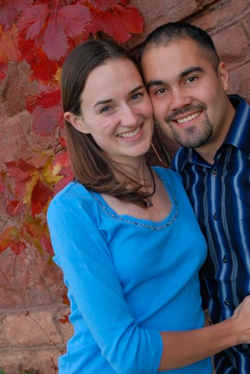 Life has been busy since I graduated from Wheaton, since moving to the Grand Canyon where I taught for 3.5 years, and now in my move to Arkansas, where I will be for at least the next year.
Life has been busy since I graduated from Wheaton, since moving to the Grand Canyon where I taught for 3.5 years, and now in my move to Arkansas, where I will be for at least the next year. My name is Amy and my studies at Wheaton included a major in English and a minor in German.
My name is Amy and my studies at Wheaton included a major in English and a minor in German.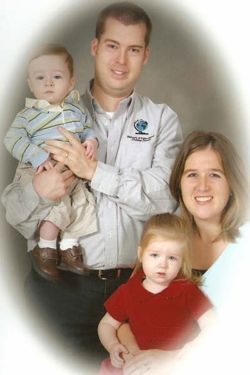 My name is Randy Lounds and I graduated in May of 2003 with a German major and Spanish minor. I completed the secondary education program at Wheaton as well.
My name is Randy Lounds and I graduated in May of 2003 with a German major and Spanish minor. I completed the secondary education program at Wheaton as well.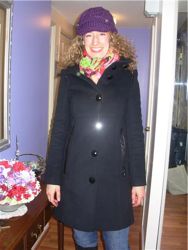 I came to Wheaton in 1998 with a focus on Biology, Kinesiology and Pre-Med, although Wheaton's German program was a factor in my school choice.
I came to Wheaton in 1998 with a focus on Biology, Kinesiology and Pre-Med, although Wheaton's German program was a factor in my school choice. Hello. My name is Todd and I graduated in 2002 from Wheaton with a German major and a Chemistry minor. I decided to major in German because I wanted to explore foreign cultures as well as continue building on the German knowledge I already had.
Hello. My name is Todd and I graduated in 2002 from Wheaton with a German major and a Chemistry minor. I decided to major in German because I wanted to explore foreign cultures as well as continue building on the German knowledge I already had.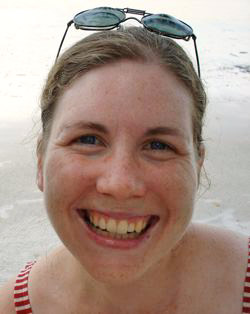 I graduated from Wheaton in 2000, with a double major in German and Political Science and a minor in Bible.
I graduated from Wheaton in 2000, with a double major in German and Political Science and a minor in Bible.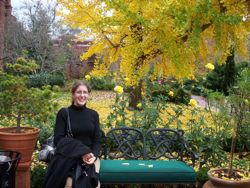 Hi, my name is Robin. I was a German major at Wheaton, and I graduated in 1998.
Hi, my name is Robin. I was a German major at Wheaton, and I graduated in 1998.